The best possible video game adaptation of the Flash might already exist
Opinion | Need for Speedster? How to adapt the Flash for video games
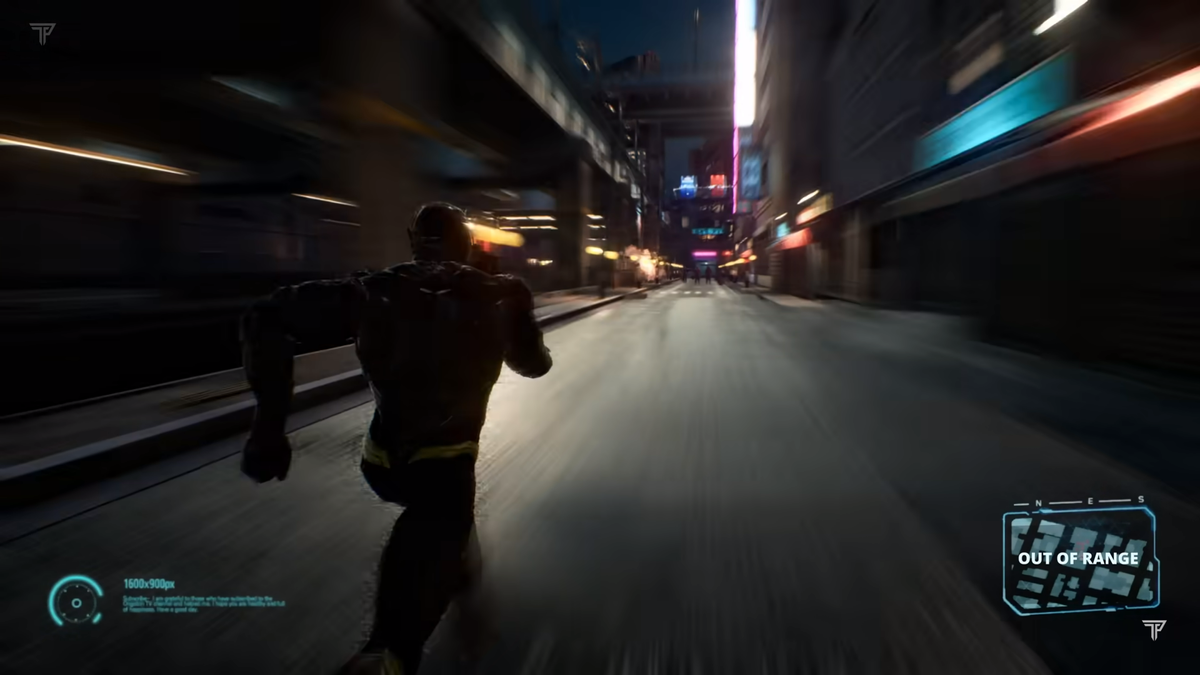
Did we all see that hypothetical Flash game video that's been doing the rounds recently? Uh, Flash the superhero, not the late 2000s Newgrounds stuff. More specifically, it's a clip taken from the TeaserPlay YouTube channel, portraying a very hypothetical video game about the DC universe's fastest man. In said clip, we see Barry Allen – or Wally West, Jay Garrett, whoever – racing about the world at ludicrous speed, flickering from Central City's alleyways to the Egyptian desert to the Himalayas in a hot instant.
"Open world game of the Flash would be insane", says one well-circulated Tweet. And yeah, I suppose it would be, in that any developer would need to abandon their sanity in agreeing to make it. Speedsters in video games are nothing new, but Flash is the speedster, capable of making lightspeed look downright slovenly. The physics engine alone for such a game would probably make Isaac Newton cry.
Still though… Can it be done? Well, I've already discussed what EA's Iron Man game would need, so with the impending evil-Flash in Suicide Squad ahead of us, let's attempt a bigger challenge of game design: how do you make a Flash game fun, and also at least semi-accurate?
Flash! Aa-ARGH!
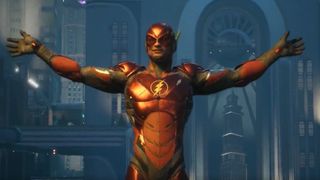
Well, let's be honest and admit straight away that a fully-accurate Flash game isn't possible. The Flash is not only capable of moving many times faster than light, he's also able to travel through time and hop between parallel dimensions by vibrating, which makes total scientific sense if you wear toy lightning bolts on your ears. So an accurate interpretation of the character would need not just one massive sandbox, but infinite sandboxes, some of which are vastly different from each other, and all modelled at all points in their timelines.
Considering that a major company like CD Projekt Red nearly self-destructed trying to do one glowing city and a bit of desert… yeah, let's curtail those ambitions and focus on the mechanics, then – namely, how do you gamify a character capable of outrunning anything? Even if we handwave the lightspeed thing and just say he's capable of going Very Fast, there's no shortage of games that have struggled to realise even those basic goals - because they're not as basic as they sound.
Dealing speed
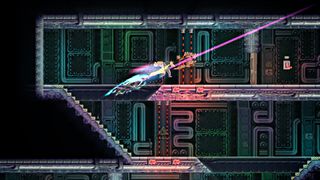
When trying to present a character with great agility, speed or reflexes, developers usually take one of two approaches: slowing down the world, or making speed a commodity – a game where controlling it is its own challenge, a skill to be practiced and honed just as much as combat or puzzle solving. The first approach is usually the domain of Bullet Time, mainly rooted in Max Payne's slow-mo jumps and developing over the years in all directions, from John Marston's quick-draw to Katana Zero's swordplay to Fallout's VATs system to Sniper Elite's pornographic portrayals of precision perforation. You could even make the case that this slowing of time is the standard for turn-based combat: pouty JRPG heroes and XCOM goons aren't actually supposed to be standing around for a few minutes between every shot, right? There's an implicit slowing of action going on here.
The downside of this approach is that if done wrong, it might not feel fast, even though we technically realise that it's supposed to be, and not especially impressive when everybody else is just moving like treacle. It's why Katana Zero wisely follows up all the sluggish slashing with a real-time presentation of how your action scene looked from an outside perspective: AKA, a blur of steel and gunfire, often too fast for the human eye to easily follow (more games with slow motion need to do this).
Sign up to the 12DOVE Newsletter
Weekly digests, tales from the communities you love, and more

Then there's the alternative approach, and that's just letting the player go really fast in real time and seeing how they handle it, testing their reflexes and situational awareness. Sonic The Hedgehog gets a token mention here, as well as Saints Row 4, Forspoken, Tracer from Overwatch, many old-school boomer shooters, and pretty much every driving game ever made.
All of which are fun when they work, infuriating when they don't. Moving like the proverbial clappers has to hit a special sweet spot where your speed always remains exhilarating and a little challenging to control, but not outrageously so. Too easy and it gets boring, effectively fast-forwarding over the landscape with little thought or consideration for what you're doing (Forspoken). Too difficult and gets frustrating, skidding out of control or crashing into obstacles the moment you turn up the accelerator (at least half a dozen Sonic games I can think of).
Flash-forward
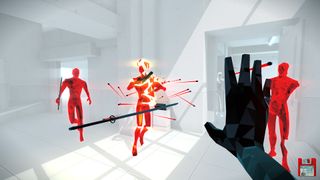
So here's my pitch: the closest we've got to a good template for a Flash game? The framework that a developer could use to build something really fun? Superhot.
For those who don't know, Superhot was a 2016 FPS that got a superlative VR adaptation later on, and is based around the idea that time slows to a crawl when the player stops moving, with bullets drawing slowly across the air, giving you time to appraise how you survive an blatantly unsurvivable situation. It's effectively a gamified version of the Quicksilver sequence from X-Men: Days of the Future Past. One mission even starts you in an elevator while three goons all fire guns at your head from point blank range – and you can still escape.
Moments inspired by gameplay like that would make for a great Flash game, evolving into a dramatic bullet-hell wherein you duck and weave between a hailstorm of slow-motion projectiles that would mean instant death for anybody without superhuman agility. Add in some fun gimmicks, like running up walls and deflecting bullets, maybe some other speedsters to fight in these strange realities, and there's the bones of something fun here – er, assuming they don't try to adapt Heroes in Crisis.
Here are the best superhero games saving the world right now

Joel Franey is a writer, journalist, podcaster and raconteur with a Masters from Sussex University, none of which has actually equipped him for anything in real life. As a result he chooses to spend most of his time playing video games, reading old books and ingesting chemically-risky levels of caffeine. He is a firm believer that the vast majority of games would be improved by adding a grappling hook, and if they already have one, they should probably add another just to be safe. You can find old work of his at USgamer, Gfinity, Eurogamer and more besides.
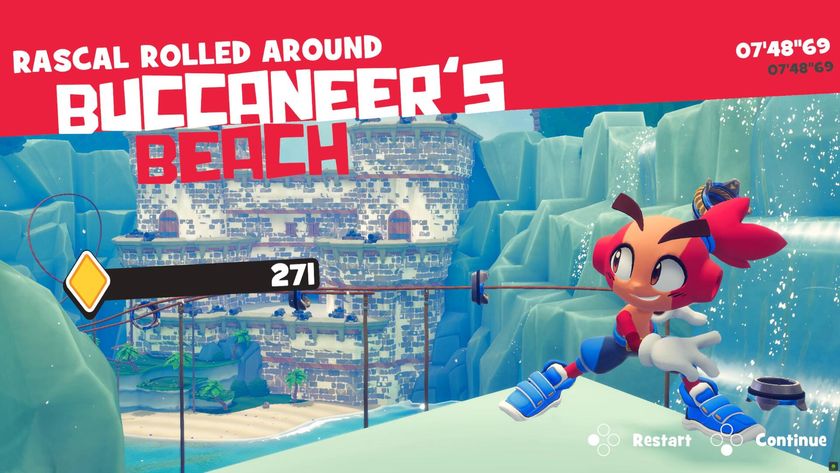
My dream Sonic game is finally real and it even has online multiplayer, except it's actually this "high-speed" 3D platformer with a glorious demo in Steam Next Fest
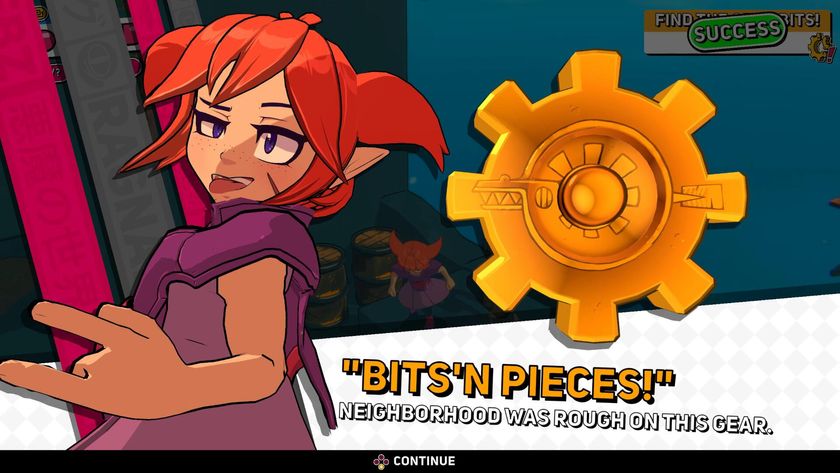
Super Mario Odyssey and Wind Waker collide in this expressive Steam Next Fest 3D platformer that's already an early GOTY contender for me
Most Popular




